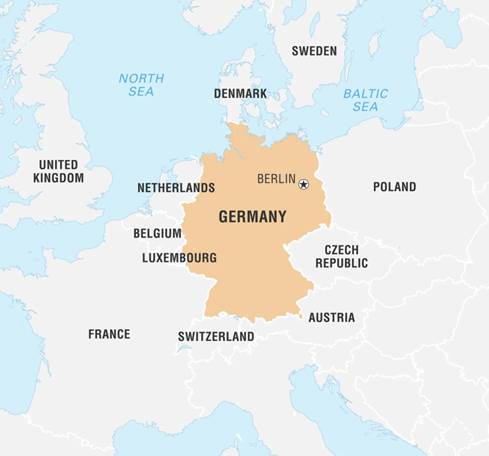Description

Copyright infringement not intended
In News: Apart from the upcoming Universal Periodic Review of India at the Human Rights Council (HRC), Indian diplomacy is faced with an additional challenge as Germany’s Foreign Minister Annalena Baerbock has demanded a special session of the council on Iran’s crackdown on peaceful protesters.
Details:
India’s stand
- The protests in Iran began after the reported custodial killing of Kurdish-Iranian activist Mahsa Amini on September 16.
- The protest that broke out against this backdrop has continued across the country since then.
- India, a member of the council, has, however, refused to condemn the violence against unarmed protesters so far.
- A high-decibel Western campaign against Iran at the council is expected to exert pressure on India as a similar situation was evident during the recent western bid to have a special discussion on the status of Uighur Muslims of Xinjiang in China which was narrowly defeated. While the Western members voted for the special discussion, India voted against the move.
About UNHRC:
- The Human Rights Council is an inter-governmental bodywithin the United Nations system responsible for strengthening the promotion and protection of human rights around the globe and for addressing situations of human rights violations and make recommendations on them.
- It has the ability to discuss all thematic human rights issues and situations that require its attention throughout the year.
- It meets at the UN Office at Geneva.
- The Council is made up of 47 United Nations MemberStates which are elected by the UN General Assembly.
- The Human Rights Council replaced the former United Nations Commission on Human Rights.
- Members of the Council serve for a period of three years and are not eligible for immediate re-election after serving two consecutive terms.

Background of relations:
- India was amongst the first countries to establish diplomatic ties with the Federal Republic of Germany after the Second World War.
- India and Germany have a 'Strategic Partnership' since 2001.
- India is amongst a select group of countries with which Germany has Intergovernmental Consultations dialogue mechanism.
- Regular visits take place from both sides, including at the highest level.
- There is an Indo-German Parliamentary Friendship Group, in German Bundestag since 1971. ➢
- ome States and Cities of India and Germany have entered into twinning arrangements. Karnataka and Bavaria have Sister States arrangement since 2007. Mumbai and Stuttgart are sister cities since 1968. In January 2015, Maharashtra and BadenWurttemberg signed a MoU to establish a Sister State relationship.
- India-Germany Defence Cooperation Agreement (2006) provides a framework for bilateral defence cooperation.
- Germany is India's largest trading partner in Europe. India was ranked 25th in Germany's global trade during 2018.
- Germany is the 7th largest foreign direct investor in India since April 2000. Germany's total FDI in India from April 2000 until March 2019 amounted to US$ 11.7 billion.
- A Fast-Track System for German companies has been operating in Department of Industrial Policy and Promotion (DIPP) since March 2016. India and Germany signed a Joint Statement on April 1, 2019 to set up a Fast-Track system on the similar lines for Indian Companies in Germany.
- Indo-German Science & Technology cooperation started with the signing of the Intergovernmental S&T Cooperation Agreement in 1971 and 1974. There are more than 150 joint S&T research projects and 70 direct partnerships between Universities of both countries.
- India and Germany have a long tradition of academic and cultural exchange. Max Mueller was the first scholar of Indo-European languages to translate and publish the Upanishads and the Rigveda.
- There are about 1.5 lakh Indians and people of Indian origin (2017 figures) in Germany. The Indian diaspora mainly comprises of professionals, technocrats, businessmen/traders and nurses.
Germany:
- Germany is formally known as the Federal Republic of Germany.
- It is located in Central Europe.
- It is the 2nd most populous country in Europe after Russia.
- It is the most populous country in the European Union.
- Germany is located between the Baltic and North Sea in the north.
- Germany shares borders with;
- The Alps in the South.
- Denmark in the north.
- Poland and the Czech Republic in the east.
- Austria and Switzerland in the south.
- France, Luxembourg, Belgium, and the Netherlands in the west.
- It is the 7th largest country in Europe.
- Most people follow Christianity.
- The official language is German.
- The capital is Berlin; it is also the largest city.
- Germany has the largest economy in Europe.
- It is the world's 4th-largest economy by nominal GDP and the 5th-largest by Purchasing power parities (PPPs).
- It is both the world's third-largest exporter and importer of goods.
- It is categorised as a developed country, it ranks very high on the Human Development Index.
- Areas of Rhine, Danube and Elbe are rich in natural resources including iron ore, coal, potash, timber, lignite, uranium, copper, natural gas, salt, nickel, etc.
https://epaper.thehindu.com/Home/ShareArticle?OrgId=GORAFEO45.1&imageview=0














